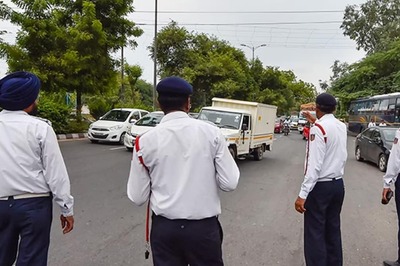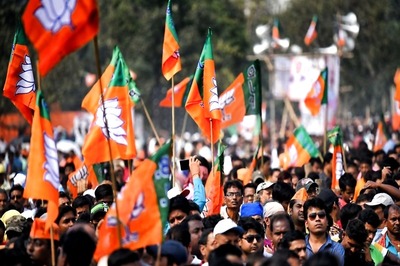
views
Tokyo: Japanese voting in local elections on Sunday are expected to vent their anger over Prime Minister Naoto Kan's handling of the ongoing nuclear crisis, further weakening him and bolstering opponents to seek his resignation once the crisis ends.
The unpopular Kan was already under pressure to step down before the massive earthquake and tsunami struck northeast Japan on March 11, leaving his government to cope with the worst crisis to hit Japan since World War Two.
Many Japanese believe Kan's Democratic Party government should form a "grand coalition" with the main opposition Liberal Democratic Party to deal with the thousands left homeless, a reeling economy and the worst nuclear crisis since Chernobyl.
The Democratic Party is expected lose seats on Sunday, with a heavy loss likely to be blamed on Kan.
"Depending on how badly the Democrats are defeated, the issue of Kan's responsibility could emerge," said Tomoaki Iwai, political science professor at Nihon University.
"Since Kan's departure is said to be a precondition for a grand coalition, such talk (about Kan's resignation and a grand coalition) could gradually surface."
Kan saw his voter support slump to around 20 percent and his grip on power weaken even before the March 11 earthquake, due to policy flip flops and perceived missteps in diplomatic rows with China and Russia.
But he is unlikely to be forced out during the nuclear crisis, say analysts. The crisis could last months as engineers struggle to regain control of the crippled nuclear reactors at the Fukushima Daiichi plant north of Tokyo.
Kan's Democrats have a big majority in parliament's lower house but need opposition help in the upper chamber. Before the crisis, opposition parties in the upper house were blocking budget bills to try and force a snap election.
Kan's eventual resignation could conceivably clear the way for a rejigged ruling coalition, and that would break a parliamentary deadlock that has kept Japan from crafting policies to address the country's most profound problems, a fast-ageing society and huge public debt.




















Comments
0 comment